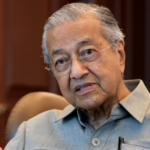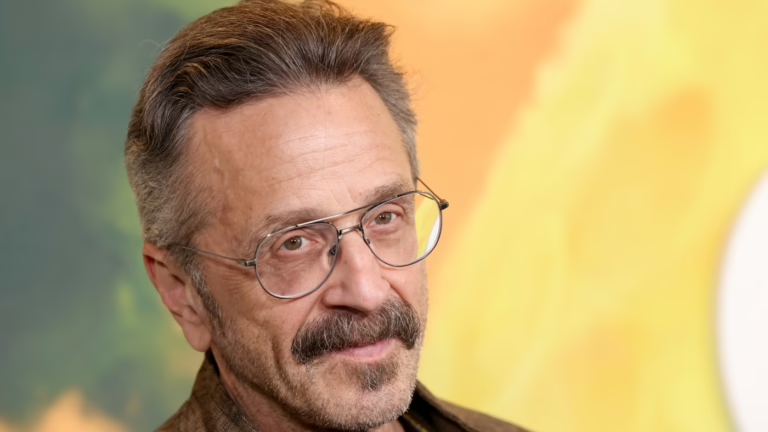Marc Maron, excluded from the Riyadh Comedy Festival lineup, has openly condemned the event, citing Saudi Arabia’s troubling human rights violations.
Amy Sussman/Getty Images/Getty Images North America
While Saudi Arabia is rarely associated with the comedy scene, its capital city Riyadh is currently hosting the inaugural Riyadh Comedy Festival through October 9, featuring a roster of prominent comedians, many hailing from the United States.
The involvement of celebrated performers such as Dave Chappelle, Aziz Ansari, Kevin Hart, and Jimmy Carr has sparked controversy among peers and human rights advocates alike. Notable comedians including Marc Maron, Shane Gillis, and Stavros Halkias have voiced their opposition, alongside organizations condemning the event.
Human Rights Watch issued a statement condemning the festival as a tool for the Saudi government to “divert attention from its harsh suppression of free speech and widespread human rights abuses.” The group urged participating comedians to leverage their platform to demand the release of imprisoned dissidents, journalists, and activists.
According to the latest 2024 U.S. State Department report, Saudi Arabia continues to grapple with severe human rights challenges, including unlawful killings, enforced disappearances, torture, arbitrary detentions, and stringent limitations on freedom of expression and press.
Discord Among Comedians
Marc Maron expressed his disapproval in a video posted on his Instagram channel, criticizing fellow comedians who agreed to perform. He referenced Saudi Arabia’s alleged connections to the September 11 attacks and the brutal 2018 assassination of journalist Jamal Khashoggi.
With biting sarcasm, Maron remarked, “Brought to you by the same folks behind 9/11 – two weeks of desert laughs, don’t miss it! The very people funding this are the ones who orchestrated Khashoggi’s murder and dismemberment. But hey, let the jokes roll, it’ll be a blast!”
Both Shane Gillis and Stavros Halkias declined invitations to the festival, which was announced in July by Turki Alalshikh, chairman of the General Entertainment Authority. Gillis revealed on his podcast that he turned down a lucrative offer, stating, “I made a stand based on my principles.” Halkias echoed this sentiment during a discussion with fellow comedian Chris DiStefano, simply saying, “I can’t do it.”
Conversely, DiStefano shared that despite initial reservations, he accepted the invitation, crediting his wife’s encouragement to take the opportunity.
Saudi Arabia’s Strategic Cultural Shift
Efforts to contact representatives of the participating comedians, the Saudi embassy in Washington, D.C., and the General Entertainment Authority went unanswered before publication. Nonetheless, the General Entertainment Authority described the festival as “the largest event of its kind worldwide,” highlighting its role in elevating Riyadh’s profile as a hub for major cultural and artistic gatherings.
Saudi Arabia, traditionally reliant on oil revenues, is actively pursuing economic, social, and cultural diversification through its Vision 2030 initiative launched in 2016. This ambitious plan aims to broaden the nation’s global cultural footprint, empower citizens, and attract both domestic and international investment.
Artists and Backlash: A Recurring Theme
The Riyadh Comedy Festival is not the first occasion where artists have faced criticism for engaging with Saudi Arabia. Renowned musicians such as Mariah Carey, The Black Eyed Peas, and Justin Bieber have previously drawn ire for performing in the kingdom.
Activist group Code Pink, for example, publicly urged Carey to cancel her 2019 concert, condemning Saudi Arabia as “one of the most oppressive and violent regimes worldwide.”
Visual artists participating in Desert X AlUla, an offshoot of the U.S.-based Desert X art festival held in the Saudi desert, have also encountered backlash. In 2019, Los Angeles Times art critic Christopher Knight labeled the exhibition “ethically compromised,” emphasizing that Saudi Arabia’s absolute monarchy and theocratic laws severely restrict free expression, rendering it illegal and punishable.
Comedian Tim Dillon revealed on his podcast that financial incentives influenced his decision to join the festival, mentioning an offer of $375,000 for a single show, with some comedians reportedly offered up to $1.6 million. He dismissed critics by saying, “If they have slaves, so be it – the paycheck’s worth it.”
However, Dillon later disclosed that he was removed from the festival lineup following his controversial remarks about slavery in Saudi Arabia. He explained on his podcast, “I joked about it, and they fired me. I wasn’t going to insult the people paying me by showing up and being disrespectful.”

















